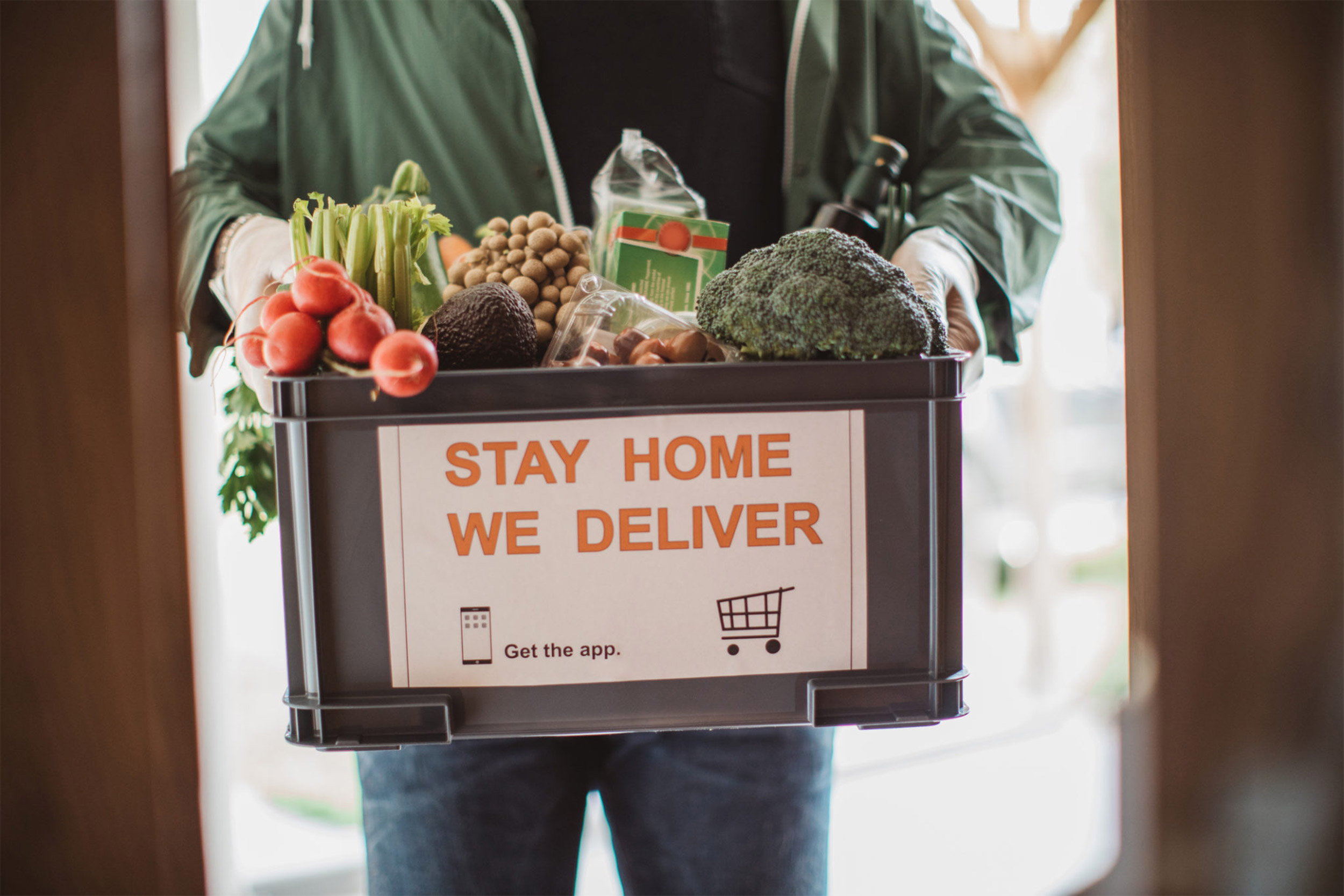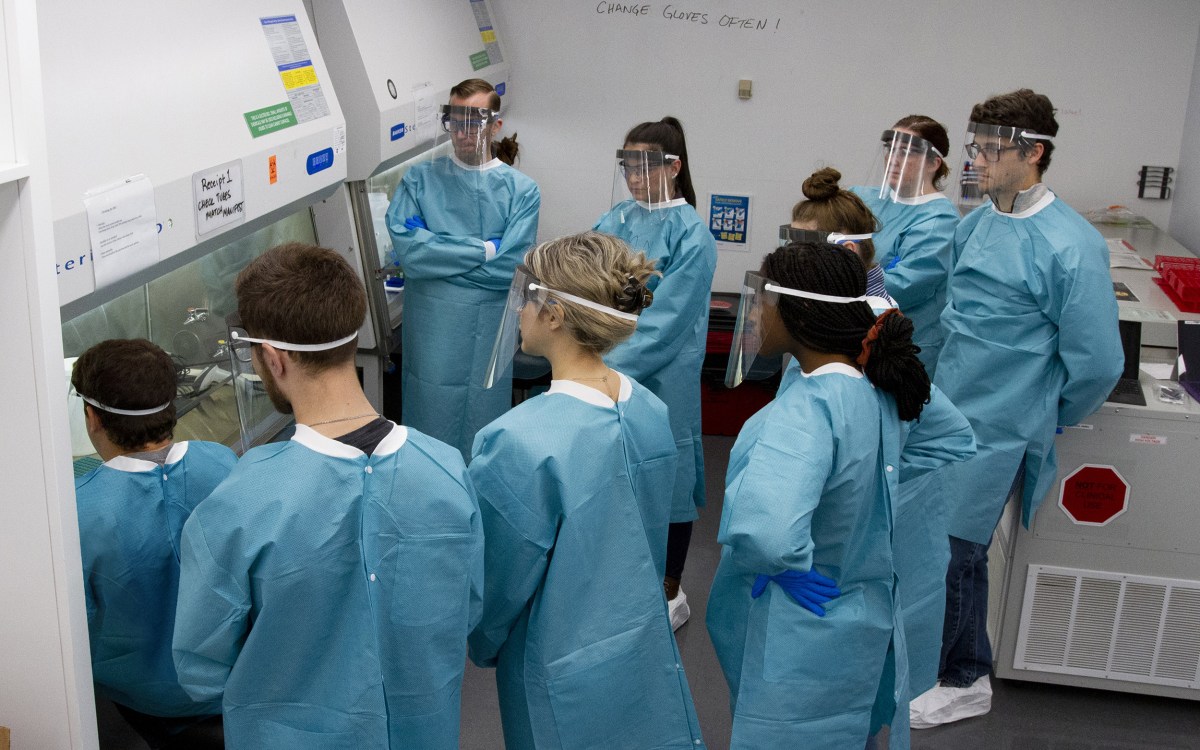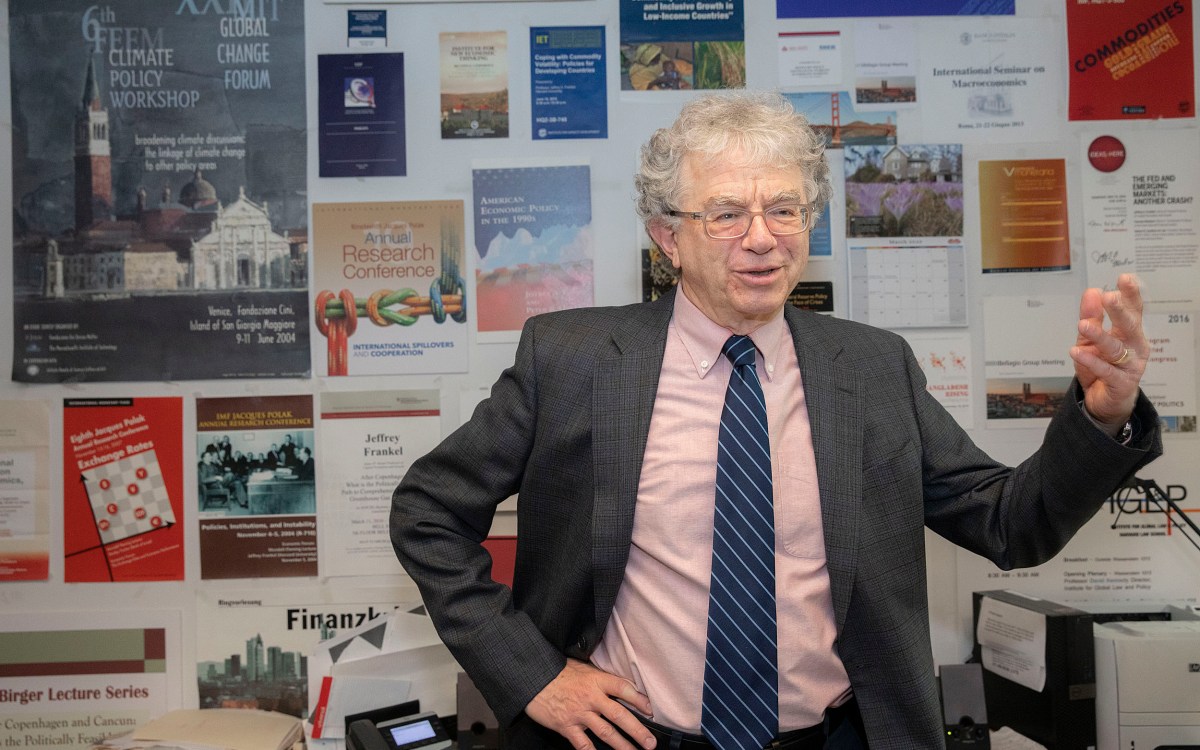
iStock
Waste not, want not
Law School’s Food Law and Policy Clinic steps up its efforts in time of pandemic
During a pandemic, a lot of things come to a halt, but one thing that never ceases is our need for a reliable supply of safe, nutritious food. Harvard Law School Professor Emily Broad Leib, J.D. ’08, director of the HLS Food Law and Policy Clinic (FLPC), and her students have been working furiously to ensure that the most vulnerable — and ultimately the rest of us — are fed.
Broad Leib and the clinic have long been a resource for food producers, food-focused nonprofits, government agencies, legislators, policy experts, and other food system stakeholders. But since early March, as the COVID-19 crisis has grown, she and a team of students and clinic staff have worked around the clock, writing briefs aimed at saving tons of food that could feed the hungry, and working to inform the response to COVID-19, including legislation that Congress has been hammering out.
According to Feeding America, a national network of food banks, one in seven Americans relied on food banks to get enough to eat before the pandemic. The clinic is a national leader in policy efforts to prevent food waste and promote food recovery, which it undertakes by partnering to provide legal and policy support to a range of programs that pick up excess food from universities, restaurants, and other organizations and get it to food banks.
As universities suddenly began to move to online learning and close down most campus operations, and many businesses reduced hours or shut their doors, Broad Leib knew this would leave behind excess food. The clinic mobilized quickly to prepare a handout urging organizations not to shutter without passing on food that could feed the hungry, explaining liability protections and tax incentives for food donations, and providing information on where and how to donate food. Many organizations responded, including Harvard Law School, which now has a food donation program in the works.
According to Feeding America, a national network of food banks, one in seven Americans relied on food banks to get enough to eat before the pandemic.
Broad Leib also understood that the basic problem the clinic has been addressing was about to grow dramatically. “There are already so many people who were in vulnerable situations,” she says. “The crisis has exacerbated food access challenges for those people, and it has added so many more individuals and families in need. Workers are losing jobs, especially those doing hourly work — many, in fact, who work in the food industry. We are going to see a huge increase in people who suddenly need help getting basic needs met, especially food.”
COVID-19 also adds a complex new layer to concerns about food safety. Not only are more people going to need food; they also need safer ways to get it. As the emphasis on the importance of social distancing has increased, new ways must be found to deliver food directly to seniors and immunocompromised individuals in their homes.
In response, the clinic put out a brief with recommendations for federal and state governments, as well as for agencies such as FEMA and the USDA, looking at opportunities under existing government programs, including the Supplemental Nutrition Assistance Program and the Special Supplemental Nutrition Program for Women, Infants, and Children, to facilitate food delivery during the COVID-19 crisis. They also have come up with proposals for getting food from food banks and other organizations delivered directly to people’s doors, and for getting Congress to supplement existing community-based food delivery organizations.
The clinic shared its brief with contacts in Congress on March 23 as the House and Senate, the president, executive agencies, and state governments across the country debated many of these policies. They have been working closely with members of Congress, helping support congressional requests to the USDA to use its authority to support food delivery. The team is also tracking state and local policies to stay on top of the best models for how state and local governments are ensuring vulnerable people stay fed in this crisis.
The brief also encourages investment in a growing number of technology solutions that match food donors to recovery organizations that pick up and deliver the donated foods, such as Food Rescue Hero and Replate.
“We make the point that these technologies can be really responsive to the challenges of the moment,” says Broad Leib, “but most of them have been developed by small nonprofits. Helping them scale up quickly to meet the needs of the growing number of people who need food support is going to require an investment.”
“It’s been a really chaotic and frightening time. It’s as if everywhere we turn there are ways this crisis is impacting the food system.”
Emily Broad Leib, HLS
Jesse Lazarus ’22, a student in Broad Leib’s Food Law and Policy seminar, played a major role in preparing this brief, focusing on public-private partnerships, describing existing efforts, and making policy recommendations to expand home delivery. “This is probably one of the most meaningful projects I have worked on since coming to law school, if not in my life,” says Lazarus. “It is an experience I will likely recall for many years to come, as I think back on this incredibly challenging time for the U.S. and the world.”
Broad Leib and the clinic also focused on anticipated new challenges to the food system as a whole, in particular the loss of market access for the many farmers and producers who sell in farmers markets or depend on large purchases by schools and universities. The clinic collaborated with the National Sustainable Agriculture Coalition to propose legislative actions to unlock already appropriated funding to these farmers, and to redirect funds that will be underutilized during this crisis. “Local foods are now a $12 million business in the U.S.,” Broad Leib says. “We don’t want these food producers to go out of business or sell their farms.”
Brianna Johnson-King ’21, a student now in the clinic for her second semester, worked on that brief, researching what flexibility existing statutes allowed. She found, for example, that a statute that supplies vouchers to low-income seniors to purchase food at farmers markets could also allow the government to make bulk purchases directly from farmers for distribution to seniors, a step that could help ensure the money is flowing to small farmers even if farmers markets are closed during COVID-19.
More like this
Johnson-King grew up in rural Ohio and has a strong interest in agriculture and the farmer’s perspective. As she researched and wrote for the brief from home, she kept the TV on in the background. The situation worsened from hour to hour as more cities and states announced shutdowns and farmers markets voluntarily closed. She says she felt the pressure: “In the back of my mind, I’m thinking, ‘Are we going to get this out in time for Congress to have a chance to act on any of it?’”
The clinic got that brief out by March 23 and followed it up with a companion document for state governments. By March 27, both the Senate and House had passed the Coronavirus Aid, Relief, and Economic Security Act, which includes funding for direct assistance to food producers, and President Trump had signed it into law. “The act does not directly address the changes we recommended; however, it still provides funding for the local and regional producers we aim to help,” Johnson-King says.
Broad Leib believes they are gaining traction. The clinic is involved in ongoing discussions with members of Congress on other aspects of the brief that may find their way into the next relief package. She is also looking ahead to the impact that COVID-19 may have on the food supply chain as a whole. “I don’t intend to cause panic, but I am certainly thinking about that.”
“A lot of the workers harvesting our crops are coming across the border,” says Broad Leib. “We need to be sure that we are keeping them safe and taking care of them. At the same time, we hear that in agriculture and manufacturing, trying to do social distancing and keep workers safe means having fewer people work at one time. That means we will have to be creative about meeting demand.” But Broad Leib also sees opportunities: “This may be the time for us to be more thoughtful about how we are regulating food and compensating and protecting workers — supporting food from farm to fork. If what comes out of this is that we better appreciate the value of the people and the resources that go into producing our food, that will be a silver lining.”
“It’s been a really chaotic and frightening time,” Broad Leib says. “It’s as if everywhere we turn there are ways this crisis is impacting the food system.” She goes on: “I’ve been blown away at the number of our students who have reached out and asked to help, even during spring break. They dove in to this important work while they were also in the midst of moving, transitioning to remote learning, and figuring out their new lives. It’s been amazing. Our students are always amazing, but never more so than in this time.”
See the Food Law and Policy Clinic’s COVID-19 Response website for more information and resources.







